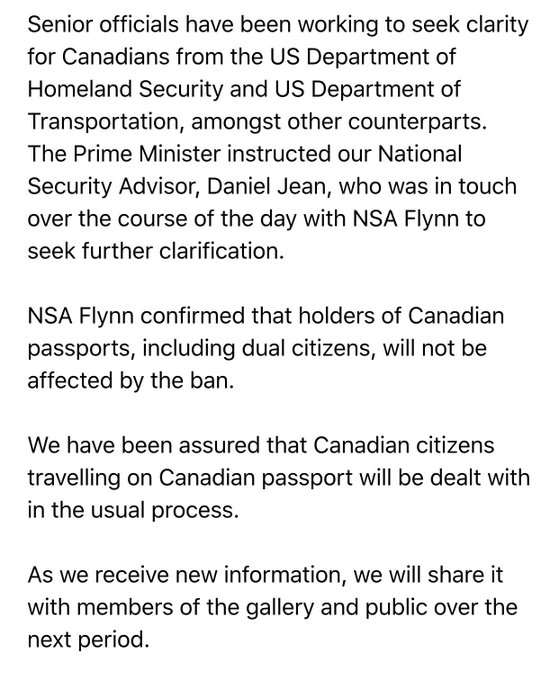These programs will open in early March 2017.
The Atlantic Immigration Pilot has two programs for skilled workers:
- Atlantic High-Skilled Program
- Atlantic Intermediate-Skilled Program
and one program for international student graduates:
- Atlantic International Graduate Program
The work experience, education, and job offer you need will depend on whether you are applying as a worker or an international student graduate. The other requirements are the same for both.
Work experience
Workers
You must have worked at least one year (1,560 hours total or 30 hours per week) within the last three years. It can be full-time, non-continuous, or part-time, as long as it adds up to 1,560 hours.
The work must be:
- in one occupation (but can be with different employers)
- paid (volunteering or unpaid internships do not count)
- at skill type/level 0, A, B, or C of the National Occupational Classification (NOC)
Check the requirements to make sure you select the right job.
The experience can be gained from inside or outside Canada.
International graduates
You do not need any work experience.
Workers apply as either high-skilled workers or intermediate-skilled workers. High-skilled workers need their one year of work experience to be at skill type/level 0, A, or B. Intermediate-skilled workers need their one year of work experience to be at the skill level C. If you are eligible to apply for both, apply as a high-skilled worker.
Education
Workers
You must have:
- a Canadian secondary (high school) or post-secondary certificate, diploma or degree,OR
- a foreign degree, diploma, certificate, or trade or apprenticeship education credential. You need an Educational Credential Assessment (ECA) report to make sure it is valid and equal to a Canadian credential.The report must show your education is equal to a completed Canadian secondary (high school) or post-secondary certificate, diploma or degree. Your ECA must be less than five years old when you apply.
International graduates
You must have:
- a minimum 2 year degree, diploma, certificate, or trade or apprenticeship credential from a recognized publicly-funded institution in an Atlantic province
- been a full-time student in Canada for at least two years
- graduated in the last 12 months when you apply
- lived in one of the Atlantic provinces for at least 16 months in the last 2 years before you graduated
- had the visa or permit needed to work, study or train in Canada
Your study or training program cannot be:
- English or French second language courses for more than half of the program, or
- distance learning undertaken for more than half the length of the program.
You can’t apply if you had a scholarship or fellowship requiring you to return to your home country after you graduate.
Note: Starting in early March 2017, Pilot candidates will be able to apply for a temporary work permit if the job needs to be filled urgently. If your future employer would like you to apply for a temporary work permit first, you will need to commit to apply for permanent residence within 90 days of your application being submitted.
More details will be available March 2017.
Job offer
You must have a job offer that is:
- from a designated employer in an Atlantic province (New Brunswick, Newfoundland and Labrador, Nova Scotia, or Prince Edward Island)
- non-seasonal
- reviewed by the province (details on the endorsement process will be available in early March 2017)
The National Occupational Classification (NOC) and duration of the job offer depends on your application.
Job offers for high-skilled workers must:
- be skill type/level 0, A, or B
- last at least one year
Job offers for intermediate-skilled workers must:
- be skill type/level 0, A, B, or C
- be indeterminate (permanent)
Job offers for international graduates must:
- be skill type/level 0, A, B, or C
- last at least one year
Your job offer does not need to be in the same occupation as your past work experience. However, you need to meet employment requirements for the job you are offered. The requirements are listed in the NOC.
The employer does not need a Labour Market Impact Assessment. Contact the provinces to learn which employers are hiring with this program:
Language
You must:
- have at least a level four (4) in the Canadian Language Benchmarks in English or the Niveaux de compétence linguistique canadiens in French, and
- take an approved language test that shows you meet the level for speaking, listening, reading and writing.
Your results must be less than two years old when you apply.
Proof of funds
You will need to show that you have enough money to support yourself and your family after you immigrate. The amount you need depends on the size of your family and includes family members you support that are not immigrating with you.
You do not need to show proof if you are already living and working in Canada with a valid work permit.
Settlement plan
To help you settle in Canada, you must have a needs assessment before you immigrate. After the assessment, you will get a plan. The plan will tell you:
- about the community where you will live, and
- where you can get help for you and your family.
Endorsement certificate
Details on the endorsement process will be available in early March 2017.

